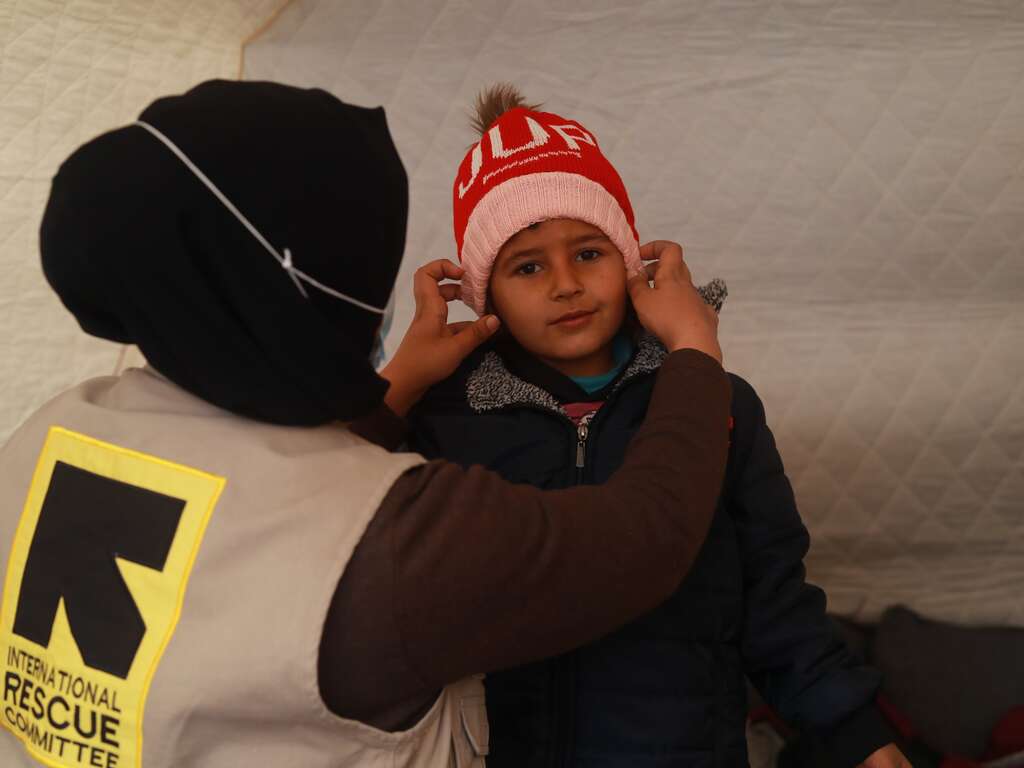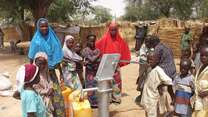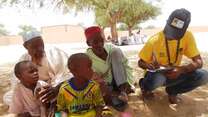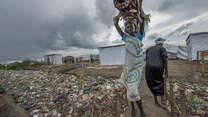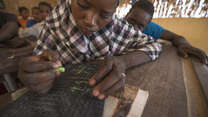Last weekend, International Rescue Committee president David Miliband met with some of the 150,000 refugees from northeastern Nigeria who have fled to neighbouring Niger to escape attacks by Boko Haram militants.
All told, more than 1.5 million people have been displaced by the violence. The IRC is one of the few aid agencies responding with humanitarian assistance on both sides of the border.
Miliband visited several uprooted families in the arid Diffa region of southeastern Niger, where the IRC has been providing water, food, health care and other emergency support to thousands of Nigerian refugees.
Diffa has been hosting the refugees since the fighting started early last year, but now the border region itself has become a target of violence. A recent spate of bombings and assaults by militants crossing into Diffa has forced tens of thousands of people to flee further into Niger.
In the country’s capital, Niamey, Miliband met a group of women who fled attacks on their home in Nigeria’s Adamawa state some four months ago. The women had traveled nearly 1,000 miles to cross the border into Niger and reach Niamey, where they knew a family who could take them in.
“The story they told me was of enormous distress in the town from which they've come, of real terrorization of the local population,” Miliband said. “There is real hopelessness.”
A looming drought
Niger is dealing not only with a refugee crisis, but also a recurring drought that has left its farmers and others across Africa’s Sahel region unable to provide enough food to meet their countries’ needs.
As the next wave of drought sets in, some 2.5 million people will struggle to find enough food, the United Nations says. During his visit, Miliband had a first-hand look at conditions in the region and how the IRC is helping communities to cope.
“The scene around me is of a very flat, red, parched landscape where drought is a feature of life and you can already see and feel climate change happening around you,” he said.
The IRC is providing medical care to children at risk of malnutrition, setting up credit unions to supplement families’ income so that they can buy the food they need, and digging wells to increase the amount of water available to irrigate crops. In Diffa, the IRC will also provide 4,000 vulnerable families with cash and food vouchers.
“High levels of malnutrition have plagued this country for a very long time,” Miliband said. “We’re trying to intervene early — not just by treating severe malnutrition — but also trying to work with local health systems on prevention measures.”
Gateway to the Mediterranean
Niger is witnessing an unprecedented upheaval of humanity. Each week some 4,000 West Africans — many fleeing the conflict in Nigeria, most simply hoping for a better life — make their way through its stretch of the Sahara desert to Libya, where they continue their perilous journey by crossing the Mediterranean Sea to seek safety in Europe.
Some of them have landed on the shores of Italy, where a team of IRC policy experts recently completed a report on the humanitarian situation for these refugees and migrants that will flag the urgent need for trauma counseling and other support.
